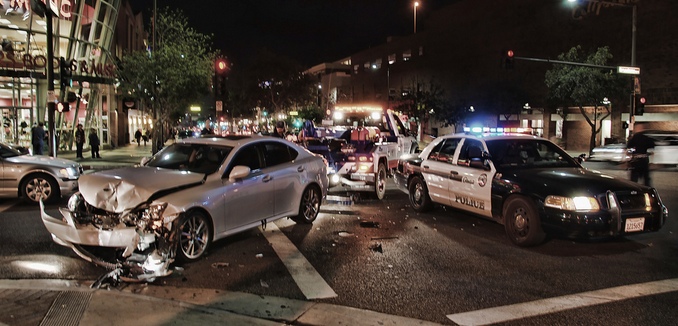While distracting devices are often blamed for the rise in traffic accidents, a new Israeli app may be able to prevent car crashes by automatically alerting nearby drivers to road issues like potholes—which can lead to swerving or quick deceleration and therefore collisions.
Nexar captures data about the road using a phone’s internal sensors—like a camera, acceleromoter, and gyroscope—and automatically shares that information with other drivers using the app.
According to Nexar CEO Eran Shir, the company has signed up 50,000 users and recorded around two million driving hours since its launch in February. The app has detected nearly a half million instances of dangerous driving. Currently in use by driving fleets, individual drivers in San Francisco, Manhattan, and Tel Aviv will soon be able to join the network.
While traffic fatalities in the United States were up seven percent last year, a 2014 government report assessed that 79 percent of all collisions could be prevented by the wide-scale deployment of vehicle-to-vehicle networks.
ResearchandMarkets estimates that the market for connected cars is increasing by 11% annually and could reach $80 billion by 2025.
“We see the future ahead of us as a future of autonomous vehicles and roads that will need to be managed and optimized, and we think we can play a major role there,” Shir told Bloomberg News.
Nexar, which has raised $14.5 million in funding, currently offers its services to drivers for free, but sells its data on potholes and intersections to municipalities so that they can improve their roads. Shir also said that one New York insurance company is offering discounts to drivers who use Nexar, and that companies developing autonomous or driverless cars are using data from Nexar to train their vehicles.
“We live in a crazy world where everyone talks to us about autonomous vehicles and a zero-accident future, but every year collisions grow by 10 percent,” said Shir. “The main reason for that is the smartphone and the way we use them irresponsibly while we drive. What we are trying to do is make it part of the solution, not just part of the problem.”
Bloomberg noted that Israel “is increasingly becoming a go-to country for autonomous car technology.” Mobileye, a Jerusalem-based startup that makes accident avoidance systems, is partnering with BMW, Intel, and Delphi—one of the world’s largest auto parts manufacturers—to develop software and mapping technology.
[Photo: Chris Yarzab / Flickr ]




